The Best Cushioned Running Shoes For Long Distances
Rack up big miles in comfort with these running shoes designed for long distances
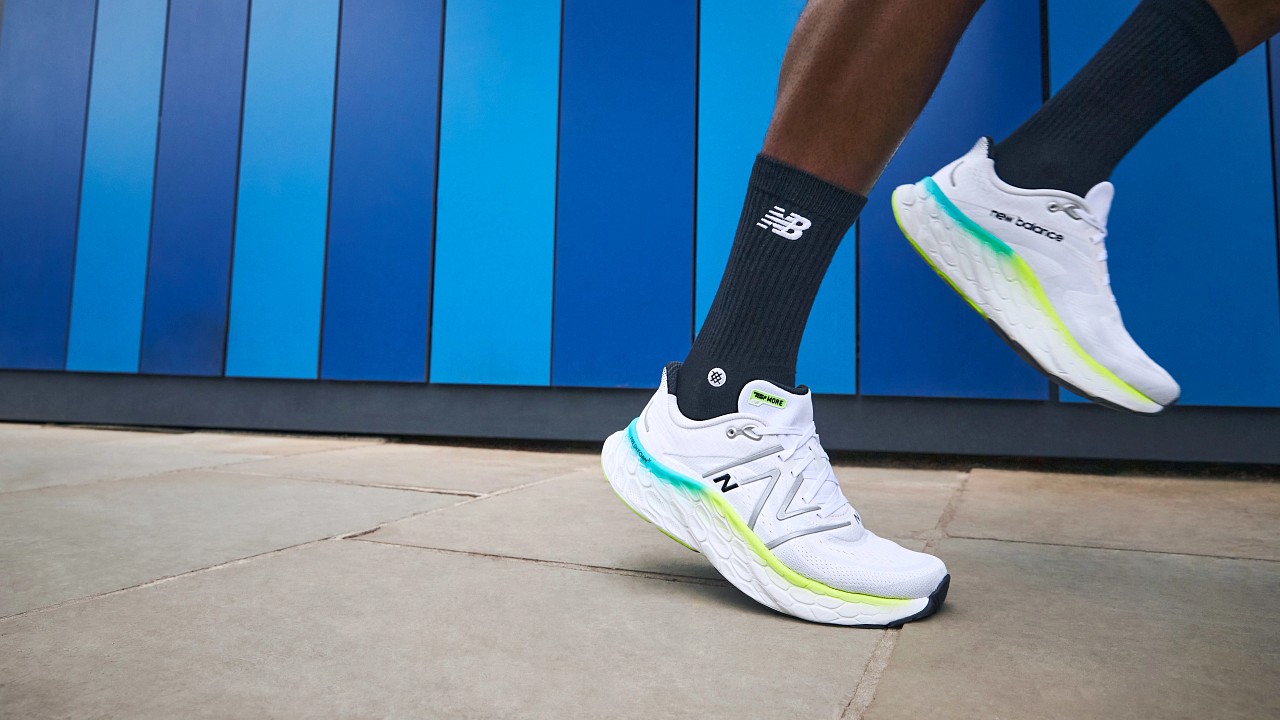
While some runners are happy to go on lengthy runs in lightweight trainers, for most of us, big mileage means big shoes. Coach’s round-up of the best running shoes always includes several cushioned options – footwear with a stack of cushioning on the bottom that protects your body from the impact of road running and ensures the shoes themselves are durable.
Cushioned running shoes can be used in rotation with lighter, faster options for speedwork and races, or as your only shoes if you use running to stay in shape and just want to enjoy the miles as much as possible.
Those training for a marathon will benefit from having a cushioned shoe to handle the long runs and easy miles on their training plan. It’s a great feeling to enjoy the protection of a cushioned shoe in training and then pull on one of the best carbon plate running shoes on race day itself for a lightweight, speedy ride. That’s why our selection of the best marathon running shoes features both cushioned and racing options.
But if you just want that bounce, here are the best highly-cushioned running shoes available.
The Best Cushioned Running Shoes For Long Distances
You can trust Coach
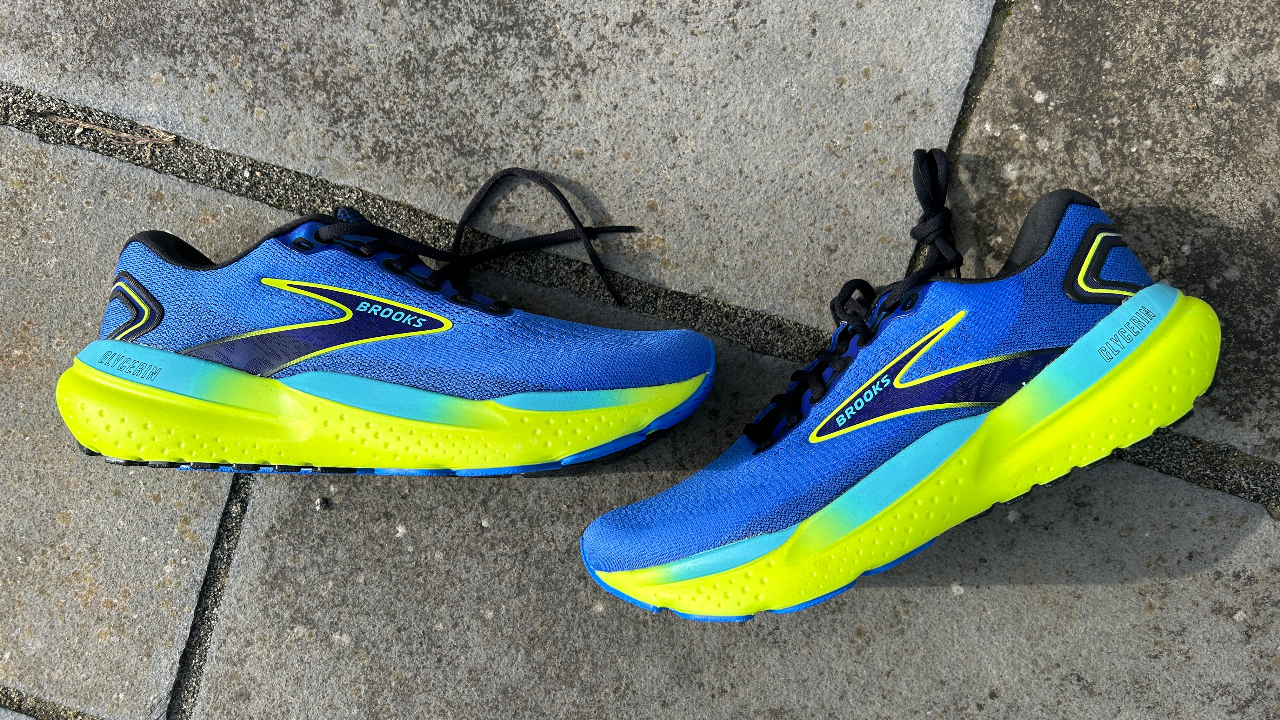
Specifications
Reasons to buy
Reasons to avoid
The Brooks Glycerin 21 is not the softest cushioned shoe but it’s still comfortable, and it pairs that comfort with more versatility than most cushioned shoes. This makes it a great option for a range of runners. I’d pop it in my rotation as a shoe for easy and long runs, though it could also be used as a cushioned daily trainer if you want one protective shoe to do it all.
The shoe excels over long distances in particular, with its nitrogen-infused midsole foam delivering a comfortable ride with a little bounce, while the outsole is also good at providing reliable grip in wet conditions. It’s expensive, and there are cheaper options to come on this list, but the Glycerin 21 is a durable shoe that will reward your investment with many hundreds of miles of happy running.
Read more in my Brooks Glycerin 21 review
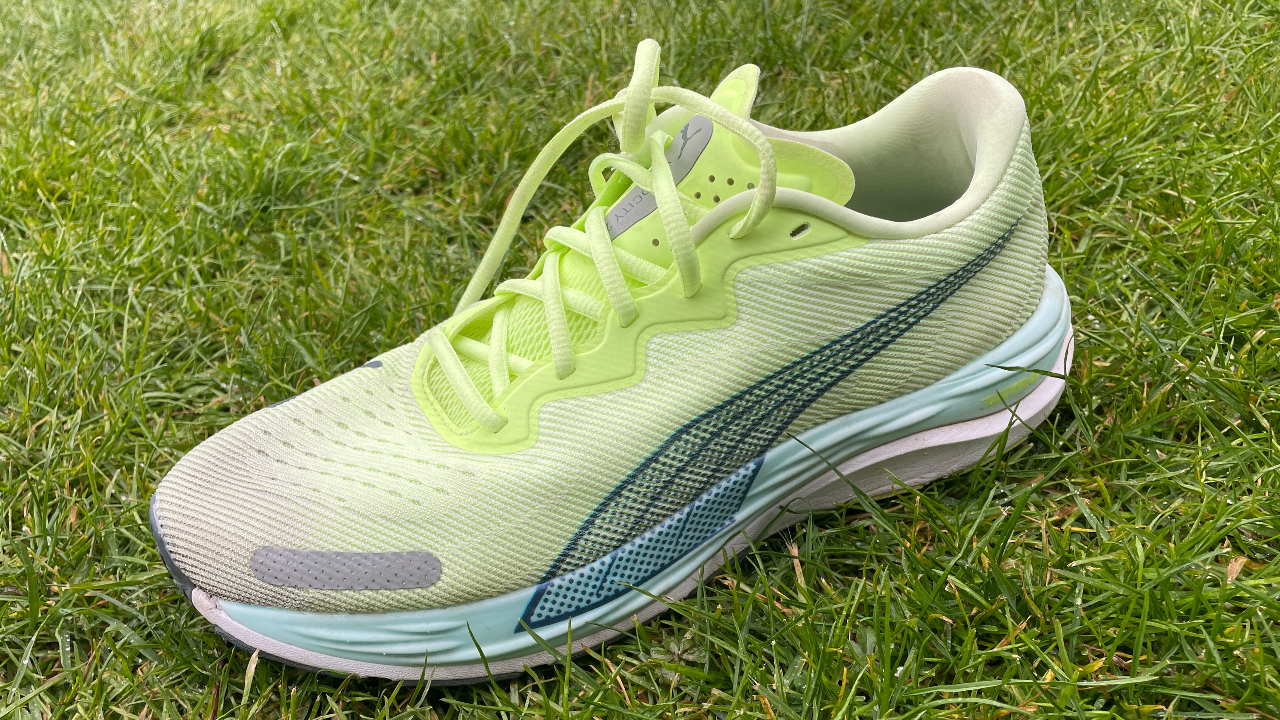
Specifications
Reasons to buy
Reasons to avoid
The Velocity Nitro 2 is versatile with a speedy enough ride to use for a greater variety of training runs than most cushioned options – which makes it a good pick for longer races as well. It’s terrific value at its RRP, is frequently reduced, and also works well as a road-to-trail shoe thanks to the excellent grip provided by its outsole.
Read more in my Puma Velocity Nitro 2 review
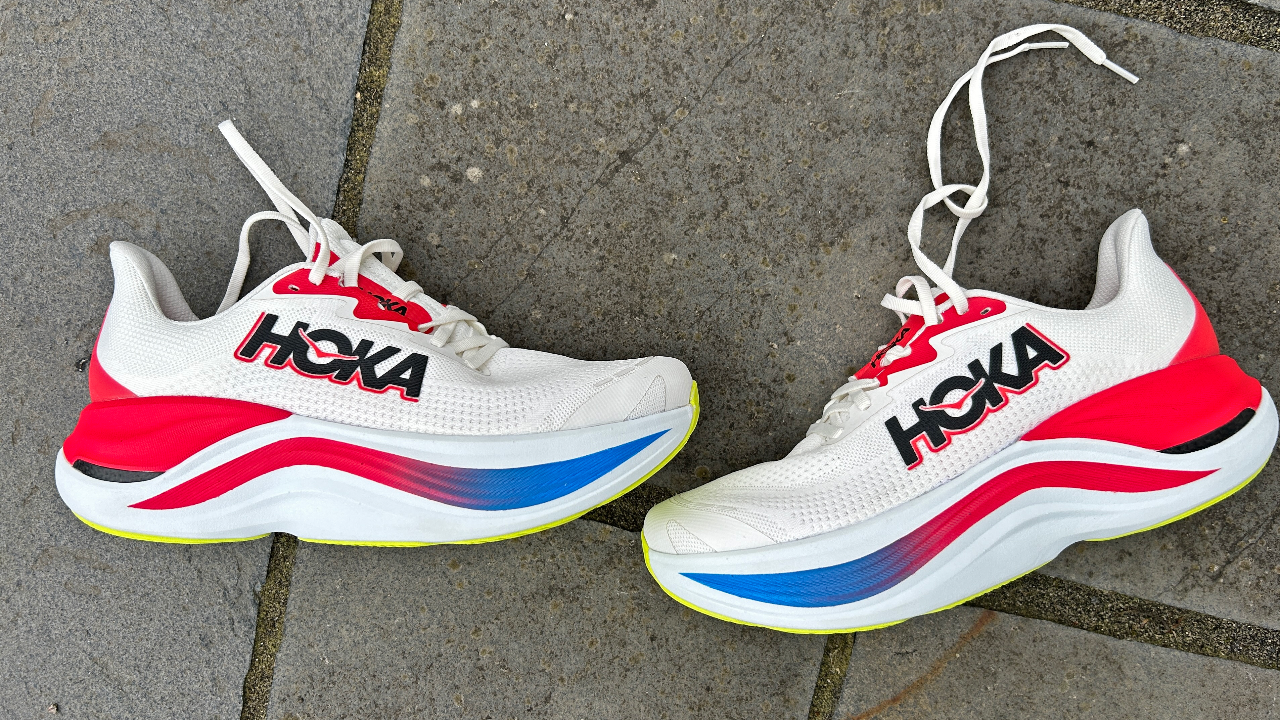
Specifications
Reasons to buy
Reasons to avoid
You don’t need a carbon plate in your cushioned shoe, and you pay through the nose to get it with the Skyward X. It’s worth flagging up this is a fun and bouncy cushioned shoe, though. I enjoyed using the Skyward X for easy and long runs during marathon training, with the plate and Peba-based midsole foam helping to propel me along and protect my legs in high-mileage weeks.
It’s not a racing shoe, despite the impressive foam and plate combo. The Skyward X is best used for daily training, and it’s a stable shoe despite the high stack so you can use it frequently. You’ll get better value by opting for a more traditional cushioned shoe on this list, but the Skyward X is a joy to run in and may be worth the outlay for runners racking up a lot of easy miles.
Read more in my Hoka Skyward review
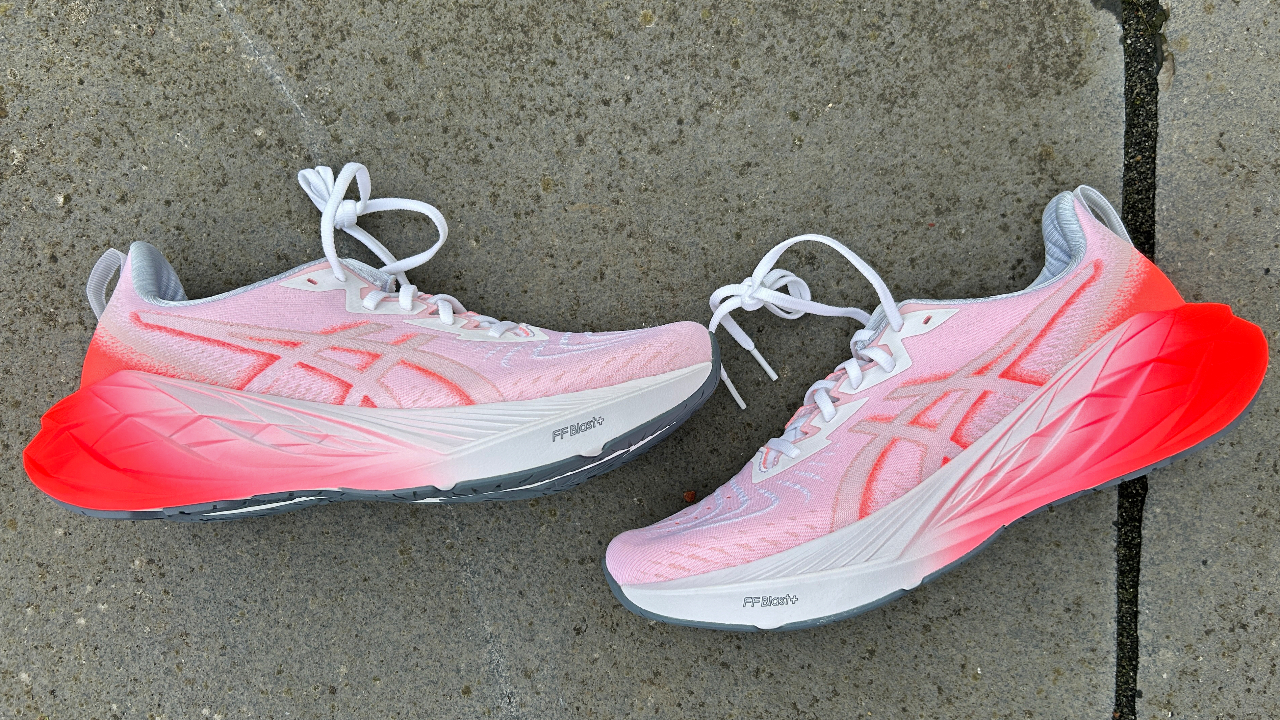
Specifications
Reasons to buy
Reasons to avoid
The Asics Novablast 4 is a cushioned daily trainer with a high stack height but a lightweight design and a smooth, rockered ride that lends itself to a variety of different runs. It’s comfortable for cruising through easy and long runs, but has enough pop for faster stuff, which gives it the edge over some max-cushioned shoes that only really work well for easy runs.
It’s also good value compared with many max-cushioned shoes that have prices as high as their midsole stacks. Some runners will like their cushioned shoe to be more exclusively focused on comfort, but the versatility of the Novablast 4 is a boon and it’s still a comfortable and protective shoe.
Read more in my Asics Novablast 4 review
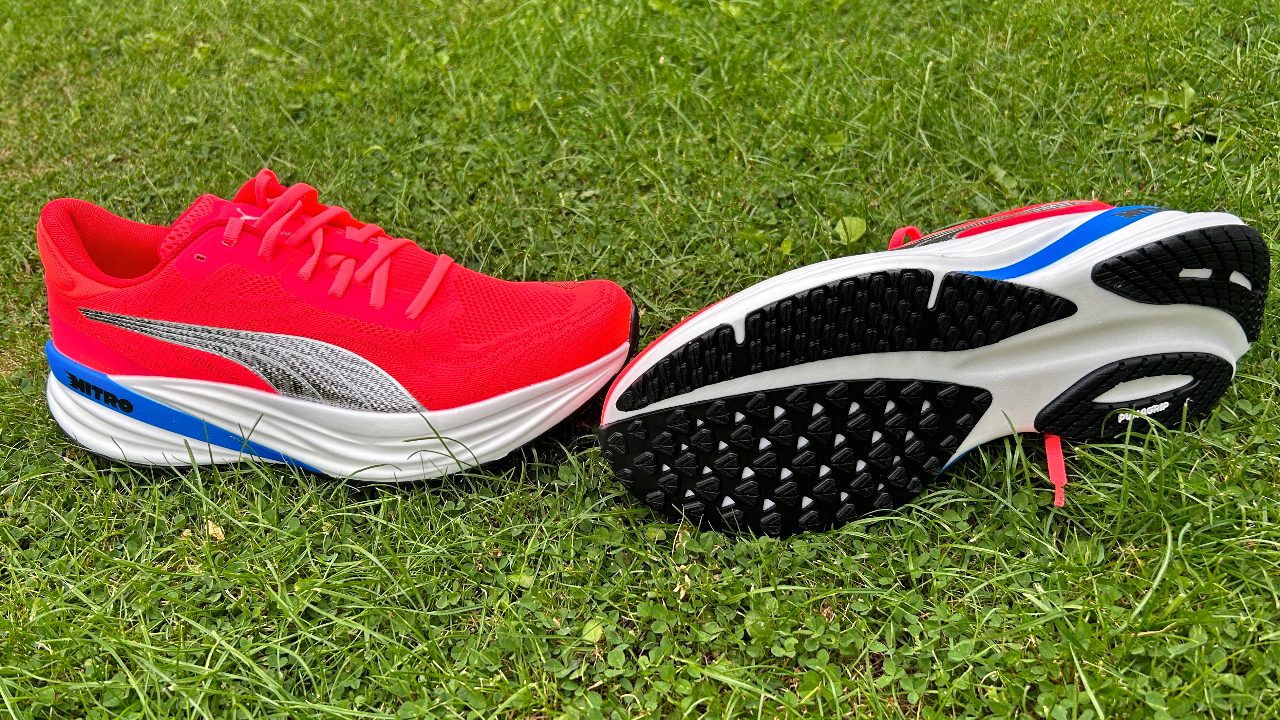
Specifications
Reasons to buy
Reasons to avoid
The Puma Magnify Nitro 2 comes in cheaper than most max-cushioned shoes without any drop-off in performance. It’s a comfortable shoe that’s great for racking up easy miles, and versatile too thanks to the bouncy Nitro foam in the midsole. I particularly enjoyed cruising through long runs in the shoe and, unless you prefer a smoother, more rockered ride (which you’ll get from the Asics Gel-Nimbus 25), the Magnify Nitro 2 is as good a cushioned shoe as you’ll find.
It also has an ace up its sleeve in the Pumagrip outsole, which is durable and grips well on wet paved surfaces. I personally prefer the lighter, lower Velocity Nitro 2 as my cushioned shoe, but if you want to max out the foam underfoot on your runs, the Magnify Nitro 2 is an excellent option.
Read more in my Puma Magnify Nitro 2 review
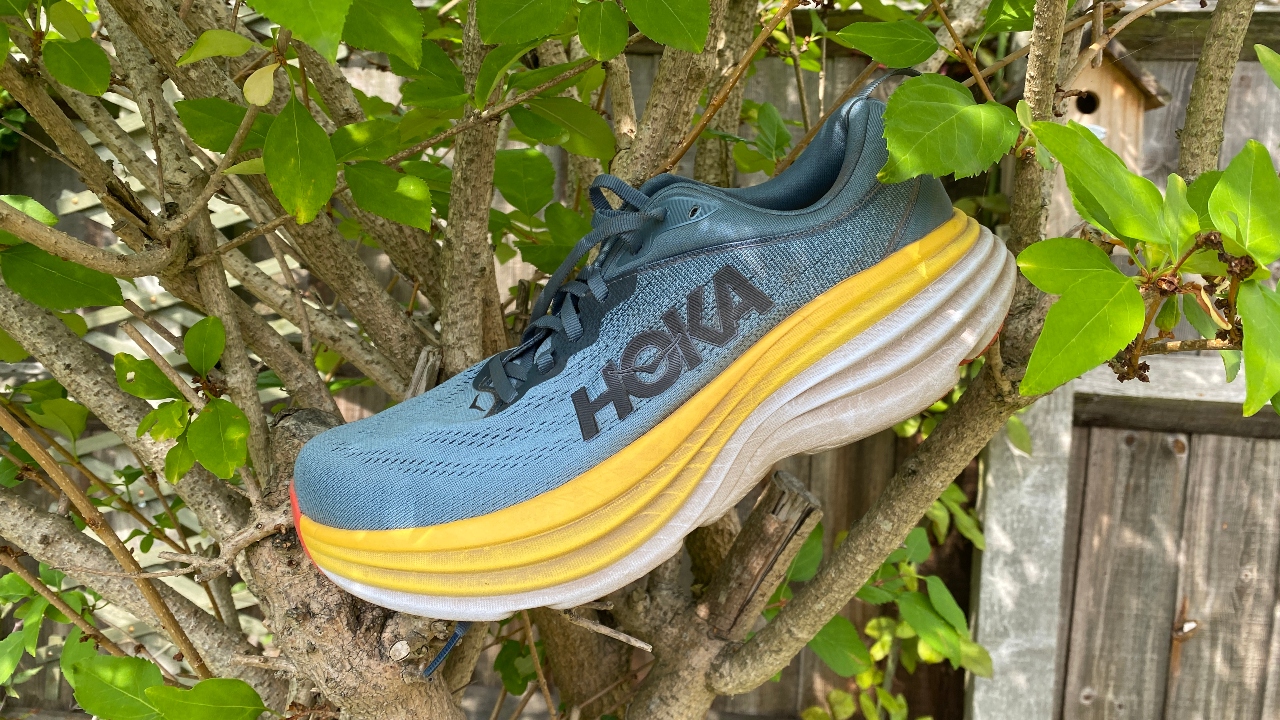
Specifications
Reasons to buy
Reasons to avoid
The Bondi is the most comfortable shoe in Hoka’s range, which is saying something given that the brand’s other shoes are hardly short of cushioning in the midsole. It’s impressively stable given the large stack of cushioning, helped by the fact your foot sits in the foam rather than on top of it. The ride isn’t all that bouncy, and other shoes on this list are softer, but the Bondi 8 protects the legs well and will last you many hundreds of miles of easy running.
Read more in my Hoka Bondi 8 review
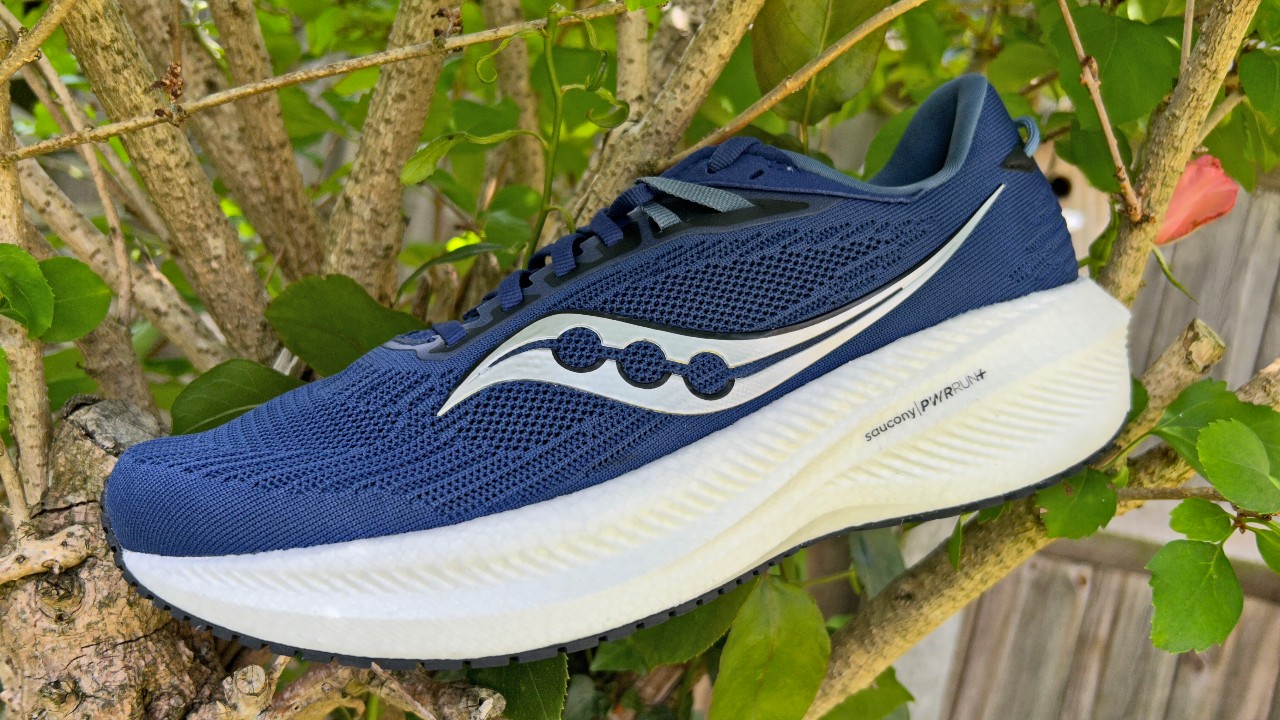
Specifications
Reasons to buy
Reasons to avoid
As with all the best cushioned shoes, the Saucony Triumph 21 puts comfort first. There’s a high stack of PWRRUN+ foam in the midsole that does a great job of protecting your body during runs. However, it’s not just built for easy cruising: the Triumph 21 is a more capable pick for faster daily training and long races than other cushioned shoes.
It’s a great all-round option for newer runners and if you have a running shoe rotation it makes for an excellent cushioned daily trainer, as it can handle easy, tempo and long runs along with being a lighter, speedier option for workouts and race day. The price is high, though, and while the Triumph 21 has a better upper than the Triumph 20, the two are otherwise similar, so grabbing a deal on the 20 may represent better value.
Read more in my Saucony Triumph 21 review
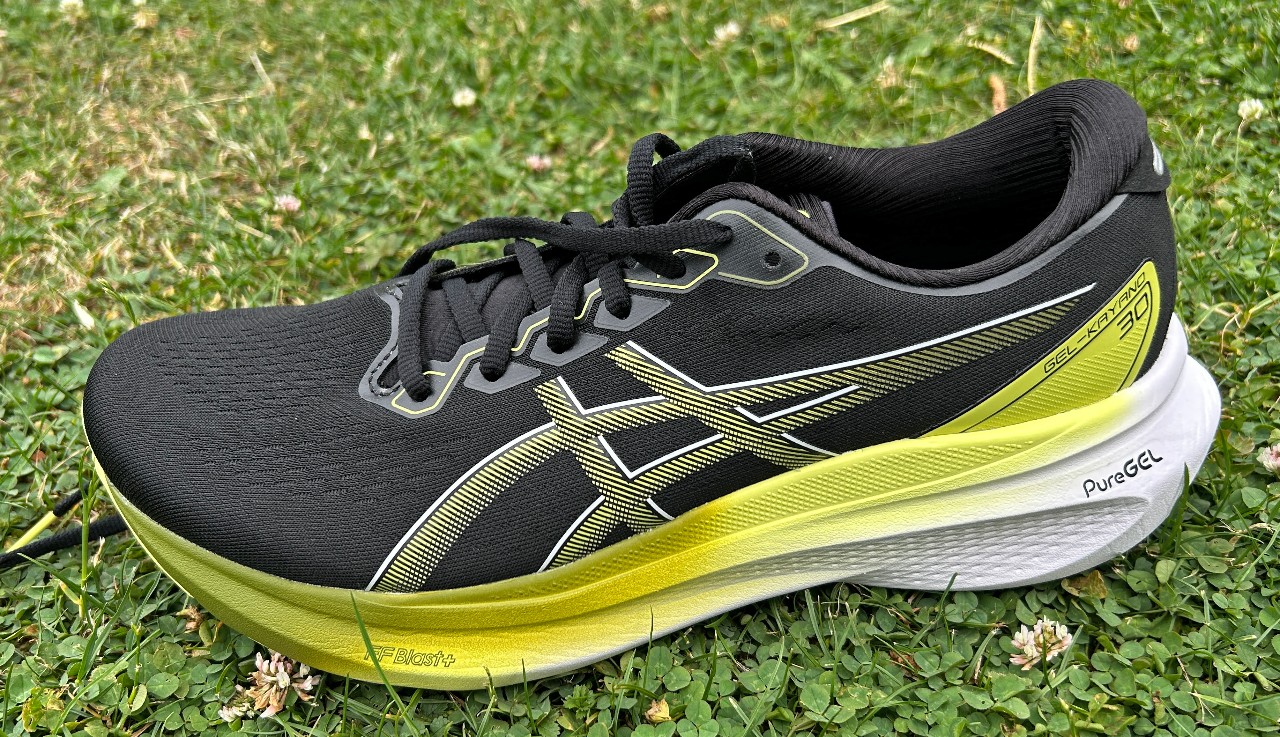
Specifications
Reasons to buy
Reasons to avoid
The Asics Gel-Kayano 30 has a similar set-up to the Gel-Nimbus 25, with a huge stack of FF Blast+ foam underfoot to create a comfortable ride. Unlike the neutral Nimbus, however, the Kayano incorporates several stability features as part of Asics’s 4D guidance system. These include a wide base (especially in the midfoot), sidewalls of foam to cradle the foot, and a softer, bouncier foam section on the medial side to spring your foot back into a neutral position.
These features create stability in a subtle way, so any runner will enjoy the cushioned, supportive feeling of the Kayano 30 on easy and long runs. As with the Nimbus 25, the Kayano 30 is fairly heavy and large so it’s not the most versatile option, and experienced runners training for events will probably prefer to use it in a rotation with faster shoes. For beginners and fitness-focused runners who need stability, however, it’s an excellent, if expensive, shoe that you can use for everything.
Read more in my Asics Gel-Kayano 30 review
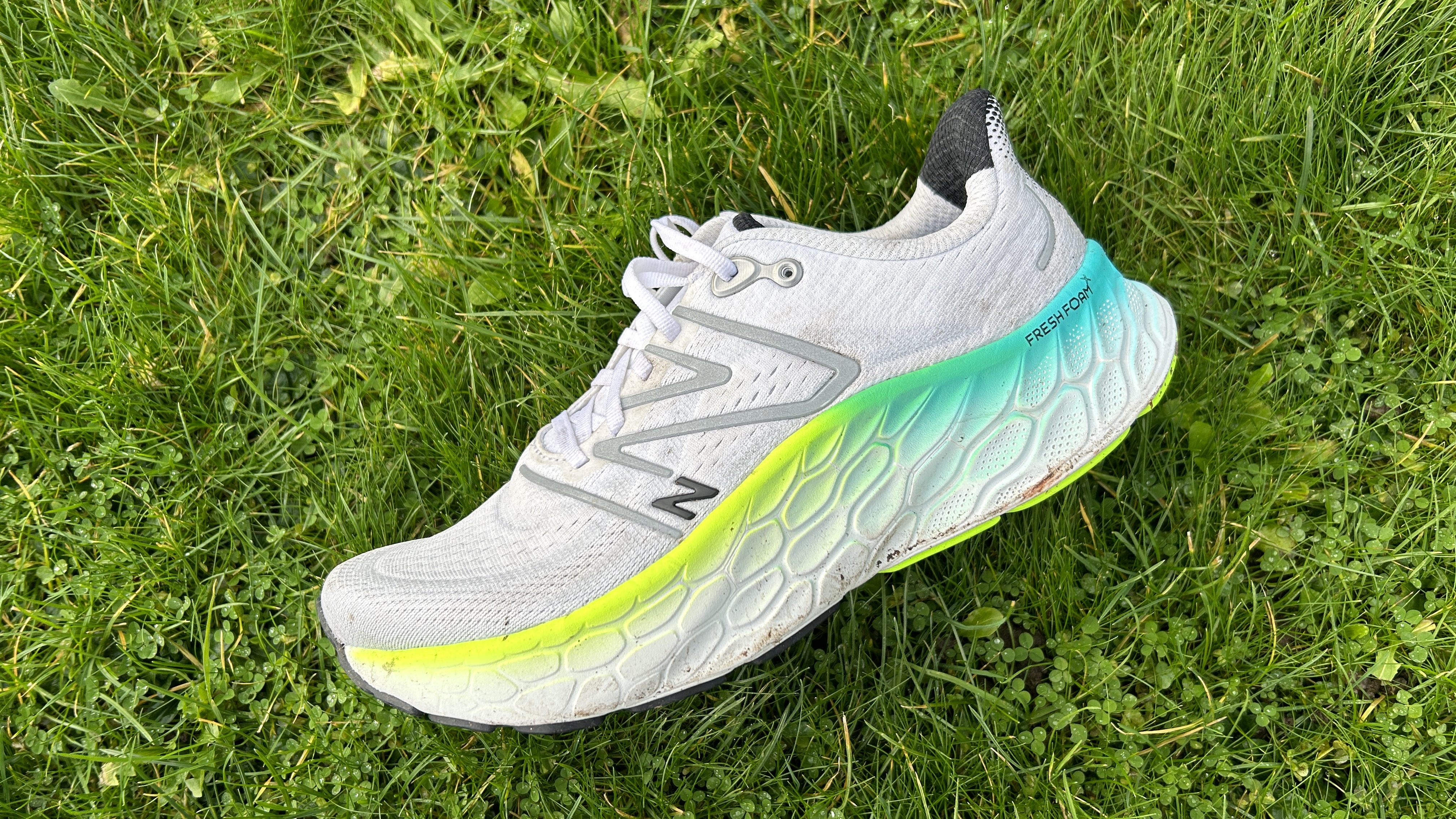
Specifications
Reasons to buy
Reasons to avoid
The More v4 is purpose-built for easy run cruising, with a big stack of Fresh Foam X cushioning and a rocker design that helps you to roll through runs of any length smoothly. Despite the size of the shoe it has a natural ride when moving at slow speeds. Only if you try to push the pace does it become a bit cumbersome.
There are more versatile cushioned shoes like the Brooks Glycerin 20 if you’re looking for more of a daily trainer that can handle a range of runs, but if you just want a comfortable workhorse for easy outings, the More v4 should top your list.
Read more in my New Balance Fresh Foam X More v4 review
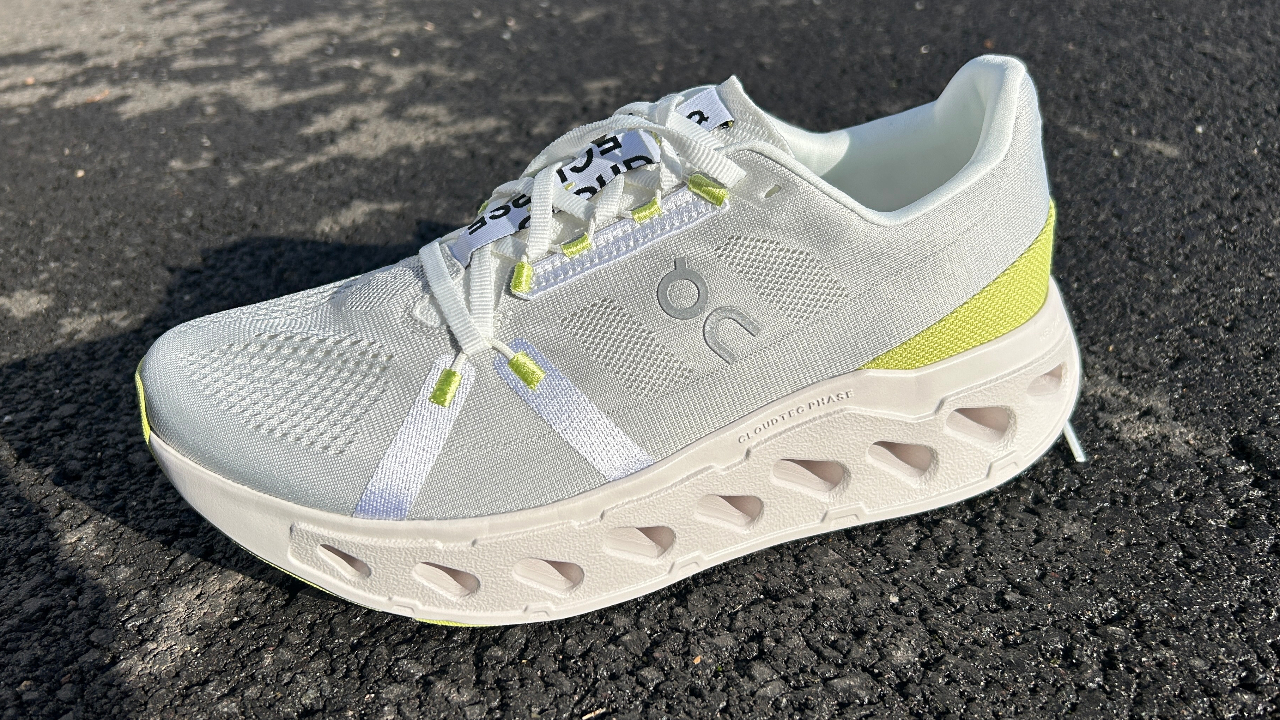
Specifications
Reasons to buy
Reasons to avoid
On has three great cushioned shoes in its line-up. The Cloudmonster is the firmest of the three, while the Cloudsurfer is very soft and introduced the CloudTec Phase midsole and rocker geometry also used on the Cloudeclipse. In fact, the latter is almost a hybrid of the Cloudmonster and Cloudsurfer with increased stack height, producing a max-cushioned shoe with a firmer ride than most options on this list and a pronounced rocker.
While some will find the Cloudeclipse too firm for a cushioned shoe, especially in cold weather when I found it felt stiffer and firmer, I enjoyed using the shoe for a variety of runs. It’s more versatile than most cushioned shoes and is still comfortable, with the rocker creating a smooth ride that helps you roll through easy runs and speed through faster ones.
Read more in my On Cloudeclipse review
Get the Coach Newsletter
Sign up for workout ideas, training advice, reviews of the latest gear and more.

Nick Harris-Fry is a journalist who has been covering health and fitness since 2015. Nick is an avid runner, covering 70-110km a week, which gives him ample opportunity to test a wide range of running shoes and running gear. He is also the chief tester for fitness trackers and running watches, treadmills and exercise bikes, and workout headphones.
